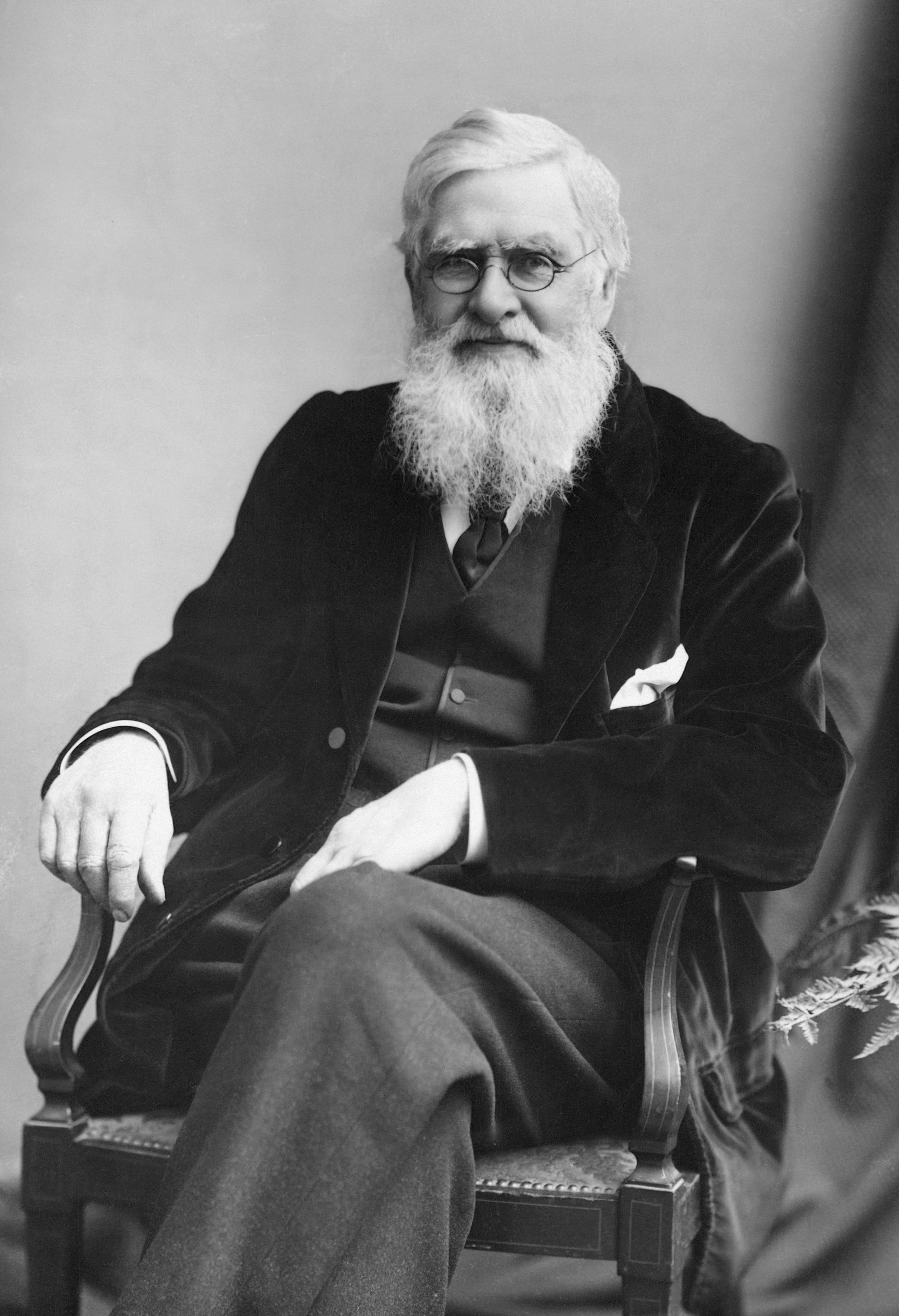Alfred Russel Wallace
 Alfred Russel Wallace (8 January 1823 – 7 November 1913) was an English naturalist, explorer, geographer, anthropologist, biologist and illustrator. He independently conceived the theory of evolution through natural selection; his 1858 paper on the subject was published that year alongside extracts from Charles Darwin's earlier writings on the topic. It spurred Darwin to set aside the "big species book" he was drafting and to quickly write an abstract of it, which was published in 1859 as ''On the Origin of Species''.
Alfred Russel Wallace (8 January 1823 – 7 November 1913) was an English naturalist, explorer, geographer, anthropologist, biologist and illustrator. He independently conceived the theory of evolution through natural selection; his 1858 paper on the subject was published that year alongside extracts from Charles Darwin's earlier writings on the topic. It spurred Darwin to set aside the "big species book" he was drafting and to quickly write an abstract of it, which was published in 1859 as ''On the Origin of Species''.Wallace did extensive fieldwork, starting in the Amazon River basin. He then did fieldwork in the Malay Archipelago, where he identified the faunal divide now termed the Wallace Line, which separates the Indonesian archipelago into two distinct parts: a western portion in which the animals are largely of Asian origin, and an eastern portion where the fauna reflect Australasia. He was considered the 19th century's leading expert on the geographical distribution of animal species, and is sometimes called the "father of biogeography", or more specifically of zoogeography.
Wallace was one of the leading evolutionary thinkers of the 19th century, working on warning coloration in animals and reinforcement (sometimes known as the Wallace effect), a way that natural selection could contribute to speciation by encouraging the development of barriers against hybridisation. Wallace's 1904 book ''Man's Place in the Universe'' was the first serious attempt by a biologist to evaluate the likelihood of life on other planets. He was one of the first scientists to write a serious exploration of whether there was life on Mars.
Aside from scientific work, he was a social activist, critical of what he considered to be an unjust social and economic system in 19th-century Britain. His advocacy of spiritualism and his belief in a non-material origin for the higher mental faculties of humans strained his relationship with other scientists. He was one of the first prominent scientists to raise concerns over the environmental impact of human activity. He wrote prolifically on both scientific and social issues; his account of his adventures and observations during his explorations in Southeast Asia, ''The Malay Archipelago'', was first published in 1869. It continues to be both popular and highly regarded. Provided by Wikipedia
1



